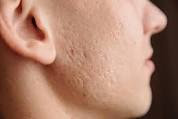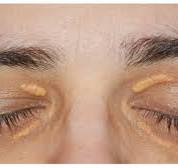Reclaiming Confidence: A Comprehensive Guide to Alopecia Treatment
Alopecia, a condition characterized by hair loss, can profoundly impact an individual's self-esteem and overall quality of life. Whether it manifests as patchy bald spots or complete hair loss, coping with alopecia can be challenging. However, with advancements in medical science and dermatology, there are various treatment options available to manage alopecia and promote hair regrowth. In this comprehensive guide, we'll explore the different types of alopecia, delve into the underlying causes, and discuss the diverse range of treatment modalities, empowering individuals to take proactive steps towards reclaiming their confidence and embracing their natural beauty.
- Androgenetic alopecia: Also known as male-pattern or female-pattern baldness, androgenetic alopecia is the most prevalent form of hair loss, affecting both men and women. It is characterized by a progressive thinning of the hair on the scalp, typically following a predictable pattern, such as receding hairline in men or widening part in women.
- Alopecia areata: Alopecia areata is an autoimmune condition that causes sudden, patchy hair loss on the scalp, face, or other areas of the body. It occurs when the immune system mistakenly attacks the hair follicles, leading to hair shedding and the formation of round or oval bald patches.
- Alopecia totalis: Alopecia totalis refers to the complete loss of hair on the scalp, resulting in a smooth, bald surface. It is considered a severe form of alopecia areata.
- Alopecia universalis: Alopecia universalis is the most extensive form of alopecia areata, characterized by the total loss of hair on the scalp and body, including eyebrows, eyelashes, and other body hair.
- Genetics: Androgenetic alopecia is believed to have a genetic predisposition, with hereditary factors playing a significant role in its onset and progression.
- Autoimmune dysfunction: Alopecia areata is thought to result from an autoimmune reaction, wherein the body's immune system mistakenly targets the hair follicles, leading to inflammation and hair loss.
- Hormonal imbalances: Fluctuations in hormone levels, such as those occurring during puberty, pregnancy, or menopause, can contribute to hair loss in both men and women.
- Environmental triggers: External factors, such as stress, trauma, medications, and environmental toxins, may trigger or exacerbate alopecia in susceptible individuals.
- Topical medications: Minoxidil, a topical solution available over the counter, is the most widely used treatment for androgenetic alopecia. It works by promoting hair follicle growth and prolonging the growth phase of the hair cycle. Corticosteroid creams or solutions may also be prescribed to reduce inflammation and stimulate hair regrowth in cases of alopecia areata.
- Oral medications: Finasteride, an oral medication approved for the treatment of male-pattern baldness, works by blocking the conversion of testosterone to dihydrotestosterone (DHT), a hormone implicated in hair loss. For alopecia areata, oral corticosteroids or immunosuppressive drugs may be prescribed to suppress the immune response and reduce inflammation.
- Intralesional injections: Triamcinolone acetonide injections are commonly used to treat alopecia areata by injecting corticosteroids directly into the bald patches to suppress inflammation and stimulate hair regrowth.
- Phototherapy: Phototherapy, or light therapy, involves exposing the scalp to ultraviolet (UV) light to modulate the immune response and promote hair regrowth in cases of alopecia areata.
- Hair transplantation: Hair transplantation surgery involves harvesting hair follicles from a donor site on the scalp and implanting them into the bald or thinning areas. This procedure is typically reserved for individuals with advanced hair loss who have sufficient donor hair available.
- Scalp micropigmentation: Scalp micropigmentation is a non-invasive cosmetic procedure that involves tattooing pigment onto the scalp to create the illusion of a closely cropped hairstyle, making the hair loss less noticeable.
Call now on our Mobile 8669086098 for booking an appointment
Kindly visit our website Derma Solutions to know more.




Comments
Post a Comment